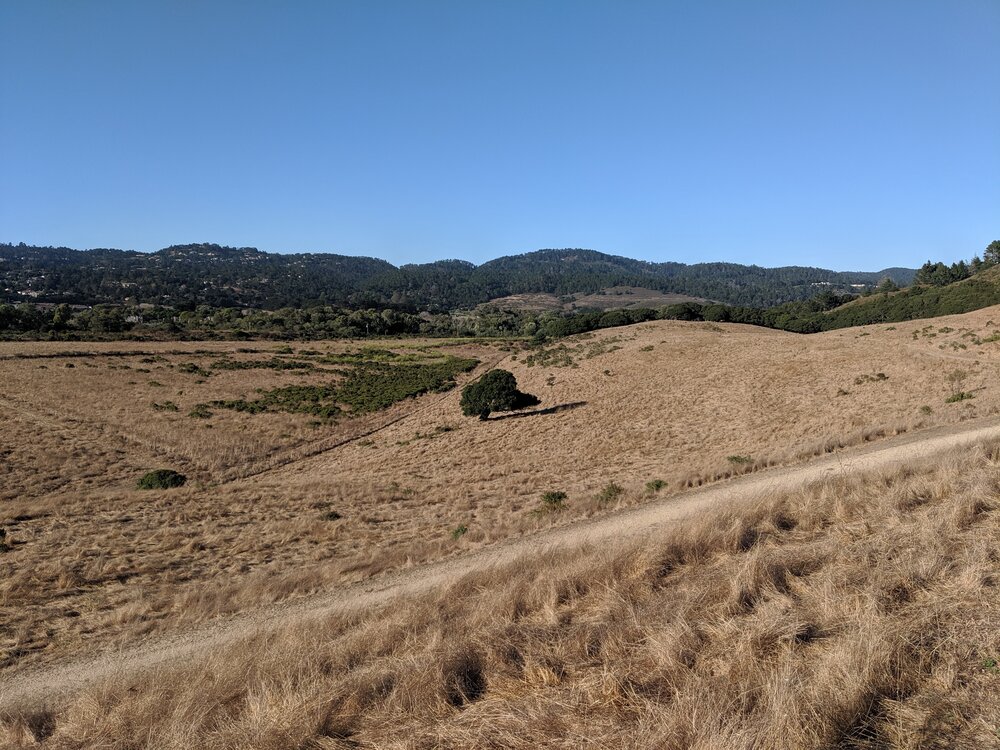
“And in the same region there were shepherds out in the field, keeping watch over their flock by night. And an angel of the Lord appeared to them, and the glory of the Lord shone around them, and they were filled with great fear.” (Luke 2:8–9).
Ancient Israelites didn’t have a romanticized view of shepherds. Their life was not glamorized or coveted. But someone had to do the job, and outside of Bethlehem during the year of Augustus’ census, a small group of unnamed shepherds gathered to do theirs.
That night, as they tended the flock, an angelic choir sang to them, announcing the birth of the Messiah-Christ. He was, they were told, wrapped in swaddling clothes and lying in a manger.
Let’s go see this thing we’ve been told, they said. Wading through the busy streets of Bethlehem, they found the stable, Joseph, Mary, and baby Jesus, just as it had been told them.
No one else knew or saw, but the shepherds rejoiced and worshipped. They had seen the coming of the King. The great Messiah for whom Israel had waited had now appeared.
They reported to Mary and Joseph all they had seen and heard out in the fields. Mary stored it all up in her heart, but they returned to their fields, glorifying and praising God for all they had heard and seen.
And, of course, that baby grew and lived a full life. His kingdom was not of this world, but He preached and worked miracles, preparing people for His kingdom. He accumulated followers and made disciples, preparing them for life without Him. Then, at the height of His popularity, He was crucified; it was His main mission. He came to be a substitute for humanity while on the cross. Just as the angel had told Joseph over thirty years earlier, He saved His people from their sins (Matthew 1:21).
After rising from the dead on the third day, Jesus appeared to His disciples and then ascended back into heaven. A small collection of disciples saw Him go. From heaven, He poured out His Spirit. His first coming was complete.
But Jesus will return.
“Behold, he is coming with the clouds, and every eye will see him, even those who pierced him, and all tribes of the earth will wail on account of him. Even so. Amen.” (Revelation 1:7).
Humble vs. Glorious
When Jesus comes again, He will come in the full blaze of His glory. In His first coming, wrapped in swaddling clothes, Jesus came in total humility, the emptying of Himself. As an infant, He desperately needed the care of His mother to survive. He had to be fed and changed and loved. He needed parents.
But when Jesus returns, the swaddling clothes will be replaced with a white robe dipped in blood. He will not lie in a manger but will ride a white horse. He will come, not in lowliness, but splendor.
Private vs. Public
When Jesus comes again, He will come so the whole world can see Him. In His first coming, only a select few recognized His birth. Shepherds, wise men from the east, some elderly prophets in the temple precincts: the news wasn’t widespread. As He grew and His message and power were revealed, wondering whispers surrounded Him. Could this be the Messiah-Christ? Some were convinced. Many were not.
But when Jesus returns, privacy and uncertainty will be replaced with the resounding truth of His identity. On His thigh a name will be written, King of Kings and Lord of Lords. All the world will know Him as such.
Local vs. Global
When Jesus comes again, He will come in as public a manner as possible. In His first coming, His birth happened in the corner of the world. Israel, not to mention Bethlehem, was small and out of the way of the great centers of the world at that time. And Jesus’ earthly ministry was localized to Israel.
But when Jesus returns, localization will be replaced with a global understanding He has come. Jesus’ second coming will be as public as lightning flashing from east to west. Everyone will see and recognize. “All the tribes of the earth will wail because of Him” (Revelation 1:7). Everyone will know.
Life Today
Jesus is coming again. I have no idea when (spoiler alert: neither does anyone else). But He will return to earth. Two thousand years ago, He incarnated for us. Through birth, He arrived. He ascended after His resurrection, and He will descend in like manner (Acts 1:11).
And how should we live in light of this promised coming of Christ? It’s a question we must consider.
Paul prayed for the church to ponder how Jesus’ return should affect life today. After teaching some of the details of the second coming of Christ, Paul wrote, “So we keep on praying for you, asking our God to enable you to live a life worthy of his call. May he give you the power to accomplish all the good things your faith prompts you to do. Then the name of our Lord Jesus will be honored because of the way you live, and you will be honored along with him. This is all made possible because of the grace of our God and Lord, Jesus Christ.” (2 Thessalonians 1:11–12, NLT).

Nate Holdridge
Nate Holdridge has served as senior pastor of Calvary Monterey on California’s central coast since 2008. Calvary’s vision is to see Jesus Famous. Nate teaches and writes with that aim at nateholdridge.com.
Blog Categories
Archives
Popular Posts
- Jesus’ Parting Words to the Disciples and Us (Mark 16:15-20) June 6, 2024
- God’s Wisdom for a Complex World #17: Phones (Proverbs) May 25, 2025
- God’s Wisdom for a Complex World 16: Money (Proverbs) May 18, 2025
- God’s Wisdom for a Complex World 15: Friendship (Proverbs) May 11, 2025
- God’s Wisdom for a Complex World #13: Proverbs on Work April 27, 2025




